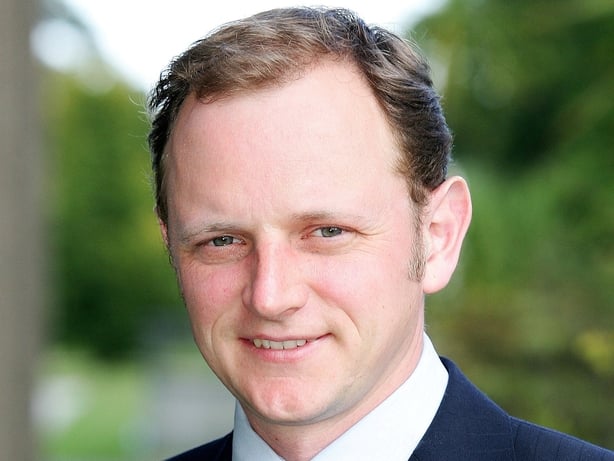Many politicians are on the receiving end of difficult questions from potential home buyers and those paying high-standard variable mortgages.
Overhauled lending rules have made it more difficult to buy a home – although that is the price of a stable banking system, according to the Central Bank.
The main political parties have made promises to property owners and first-time buyers. RTÉ's Business Editor David Murphy takes a look at some of them.
Fianna Fáil
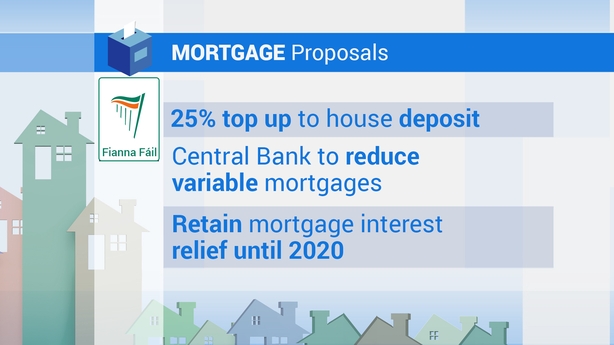
Fianna Fáil is proposing to give potential home buyers a 25% top-up to their savings accounts to help them save for a deposit.
The scheme would give them up to a maximum of €5,000. The annual cost to the taxpayer would reach €84m after three years.
The party is proposing to retain mortgage interest relief until 2020 to help homeowners repay loans. That tax break would cost €166m annually.
Under current arrangements the relief is due to expire next year.
The party is also proposing that the Central Bank force banks to reduce "excessive" variable interest rates.
Fianna Fáil is planning to give additional help to those who are in mortgage arrears.
The party would request that banks apply a zero interest rate to the warehoused portion of split mortgage (where a mortgage is split into two parts, the first is paid the second is put on ice).
The party says it will support credit unions to enter the mortgage market.
Remarks: The top-up proposal is effectively a mechanism for the State to help home buyers circumvent Central Bank rules. Is that a good use of taxpayers' money?
Should a low-paid earner help a better paid worker get a deposit? Regarding standard variable rates, Central Bank Governor Philip Lane has already stated it is not the regulator’s job to cap rates.
Labour Party
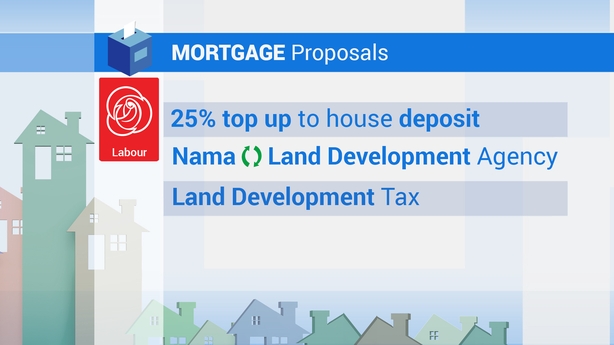
Labour says NAMA should become a Land Development Agency to tackle hoarding and counter land speculation.
It wants to expand the vacant site levy into a land development tax. This would be paid by owners of sites who are not developing them.
The Labour Party says it is in favour of new Central Bank rules. Similar to Fianna Fáil, the party says it would introduce a "Save to Buy" scheme with a 25% top up to a maximum of €1,200 annually reaching a total of €6,000 over five years.
Remarks: There are going to be problems with the "Save to Buy" scheme similar to the drawbacks which will apply in the case of Fianna Fáil's proposal.
Regarding a tax on undeveloped sites, would this make it more difficult for NAMA to sell such parcels of land?
Fine Gael
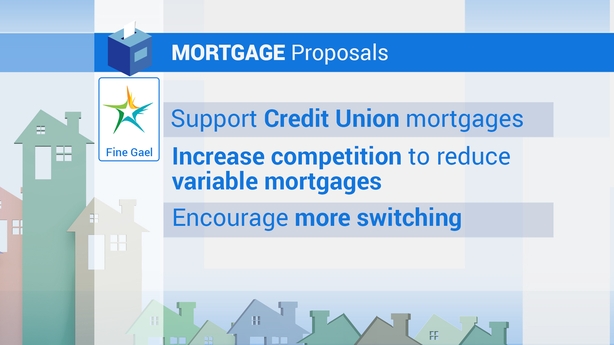
Fine Gael would work with Registrar of Credit Unions at the Central Bank to lift lending restrictions including for housing if it is appropriate.
The party would seek to increase competition in the banking sector to "drive down" standard variable mortgage rates.
Fine Gael says it will establish a code of conduct for those who wish to switch mortgage provider thereby encouraging consumers to get a lower-cost home loan.
Remarks: There is little new here. One question is whether the Credit Unions are in a position to offer mortgages from a regulatory point of view.
Would credit unions be prepared to repossess a member's home if they went into arrears? Fine Gael's policy on high-standard variable mortgages is in marked contrast to Fianna Fáil which wants to get the Central Bank involved in setting interest rates.
Instead, Fine Gael is hoping competition in the market will resolve the issue. Many homeowners find they can't switch to cheaper mortgages because they are in negative equity or they don't have sufficient equity.
Sinn Féin
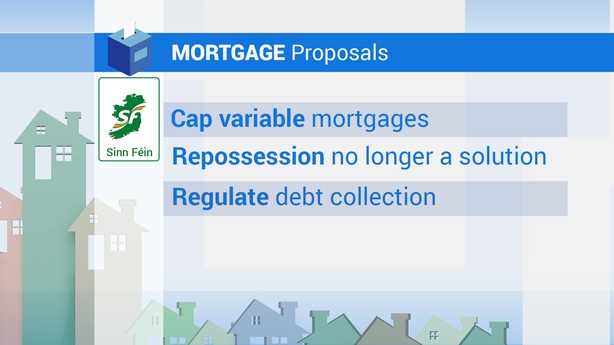
Sinn Féin wants to empower the Central Bank to cap interest rates charged by banks.
It also wants to amend Central Bank rules so repossession would no longer be accepted as a solution put forward by banks for customers in mortgage arrears.
The party says that would put pressure on the banks to find solutions "or face the consequences such as greater capital requirements".
Sinn Féin wants to ensure debt-collection services are regulated.
It also wants to strengthen powers of the Financial Services Ombudsman.
Remarks: There is no harm strengthening the powers of the ombudsman. Regarding mortgage arrears it is already the case that banks can only use repossession as a last resort.
Using greater capital requirements as a mechanism to punish banks could cost the taxpayer money. AIB is owned by the State, if it were to require more capital it could damage the value of the bank.
Read more from RTÉ's Business Editor David Murphy:
What the parties are promising on tax
The Irish economy in six charts
